A Blackass Field Trip Journeys through Cities of Black Storytelling
Video created and edited by Amanda Barnes, November 2019.
Enjoli Moon and Sesha Joi Moon, Ph.D. want you to know these two things if nothing else:
1) Richmond, Virginia is historically and culturally lit and 2) There are historical experiences of Black people that need to be unearthed and shared in cities across the U.S. and world. The Co-Creators of A Blackass Field Trip are homegrown Richmond ambassadors and sisters who also lead thoughtful cultural curation of Black experiences through their independent platforms (Afrikana Independent Film Festival created by Enjoli and Angry Black Female created by Sesha).
They launched A Blackass Field Trip (BAFT) during Veteran’s Day Weekend in 2018, in a purposeful journeying to Montgomery, Alabama by bus with 20-plus Black folk to chart histories further South. BAFT manifests as “an intimately curated excursion designed to educate Black people on the Black experience by exploring Black spaces across the Black diaspora that have influenced Black history.” The 2019 trip explored New Orleans and the city’s particular pathways of history, culture, food, art and joy. These voyages are intentional in connecting the histories of other places to Richmond’s evolving reckoning with racial violence, truth-telling, narrative re-centering and restorative justice. IofC USA has gladly been along for the ride as a resource partner and participant; we’ve been fortunate to have multiple staff members take part in the trips each year.
The 2020 trip would have crossed the U.S. borders to Barbados as a way of cultivating international Black experiences. However, the trip has been postponed due to the COVID pandemic. This has not stopped Enjoli and Sesha from dreaming, plotting and planning for future iterations of BAFT - perhaps to a city near you!
In celebration of this unique cultural passage, we share some interview and visual highlights with A Blackass Field Trip’s creators on Veteran’s Day (and what would have been the first day of the 2020 trip). We thank Amanda Barnes, IofC’s Arts Alchemist, for conducting this interview and capturing video and photos of the 2019 trip.
The Importance of Placemaking: A Blackass Field Trip to Montgomery
Enjoli: The first trip was to Montgomery [Alabama] in 2018. The Equal Justice Initiative (The Legacy Museum & the National Memorial for Peace and Justice) gave us ways to actively engage and make Richmond a part of the conversation through the soil. They collect soil from different spaces throughout the country. We were able to hear stories about the lynchings they are trying to verify happened in Petersburg [Virginia].
[However] we weren’t seeing anyone from Richmond on any of these pillars [within the Memorial]. We’re talking about the former home of the confederacy, the epicenter of the advent of racism. We were not immune to the violence that was enacted against Black people. For Richmond to not be actively included also speaks a lot to the forgotten histories and truths that live here. It was important for us to bring our people there so we’re bringing that Richmond energy to it. It’s our responsibility to ensure that our stories are told so they aren’t forgotten or overlooked in the course of history.
Partnerships Are About Inherently Connected Work
Sesha: These are not trips for vacation. These are very much field trips where we infuse a lot of fact-finding with fun. During the day we are going through very emotionally draining experiences. We knew that we needed people (like bareSOUL Yoga and Avail Counseling) on the trips to help people process and work through their feelings.
Enjoli: We did our best to think through this strategically and the emotional experiences people were going to have. To think through the historical and intellectual experiences we wanted to pour into people outside of the museum - to give context and root it in Richmond – that was purposeful. We also partnered with institutions in the area – places that are dedicated to holding some space for histories that are often under-told (like IofC USA, the Black History Museum & Cultural Center of Virginia, The Valentine, and the Virginia Museum of Fine Arts). These institutions understand the value of going outside of Richmond, experiencing stories, bringing them back here and how that adds to the fabric and landscape of Richmond as we continue to evolve and understand who we are and how that connects to other places. None of this stands alone.
Sesha: As part of those strategic partnerships, it’s been mind-blowing just to see how interrelated all of the work that Black Richmonders are doing right now is. The work that Afrikana Independent Film Festival does is so inherently connected to the work that Angry Black Female does. And that work is so inherently connected to the work that folks at IofC do. It’s beyond being just a partnership but a divine purpose that we are all doing work that helps to facilitate one another’s work.
Check out these gallery of images from the 2019 Blackass Field Trip to New Orleans:
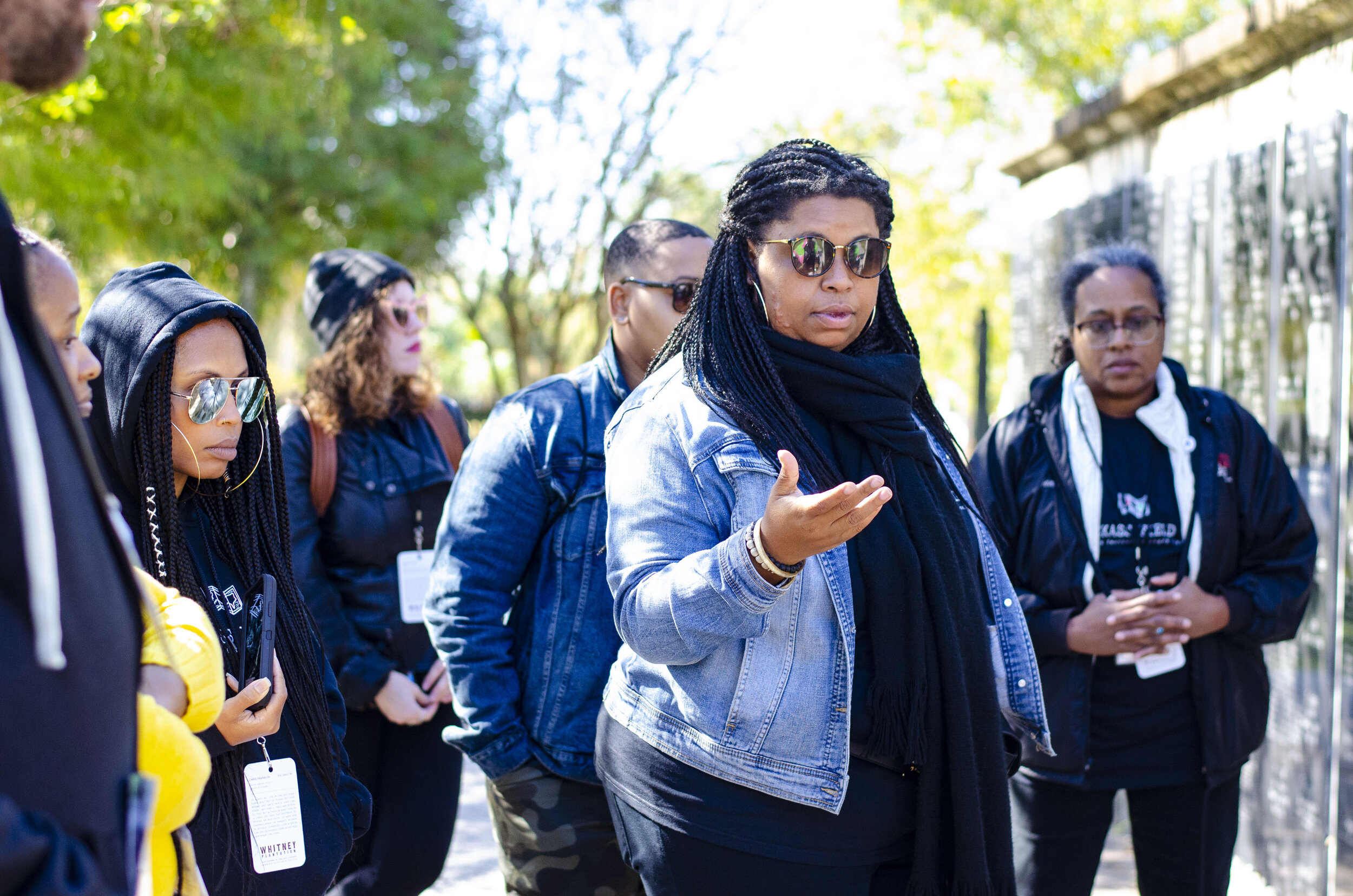
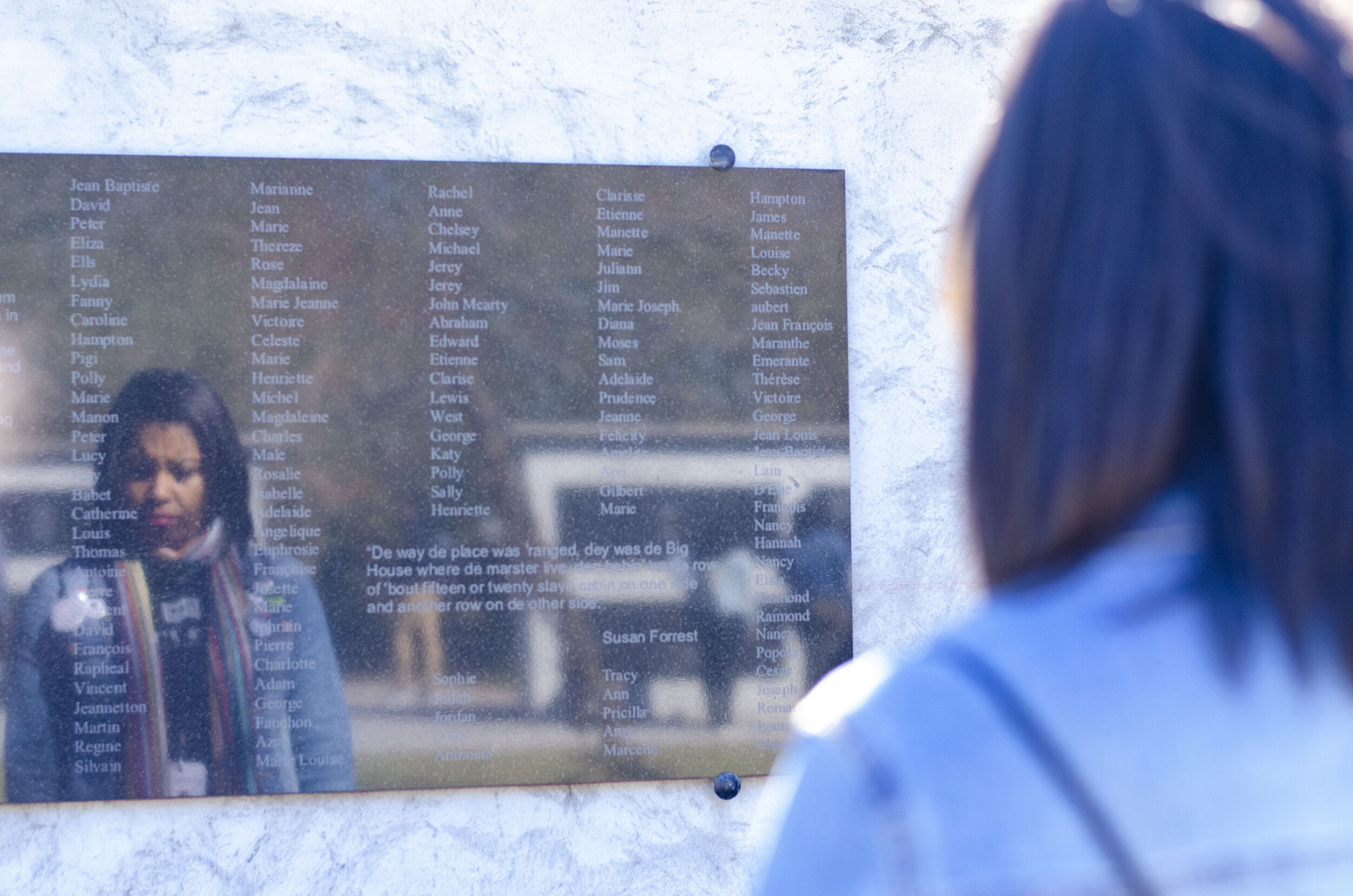
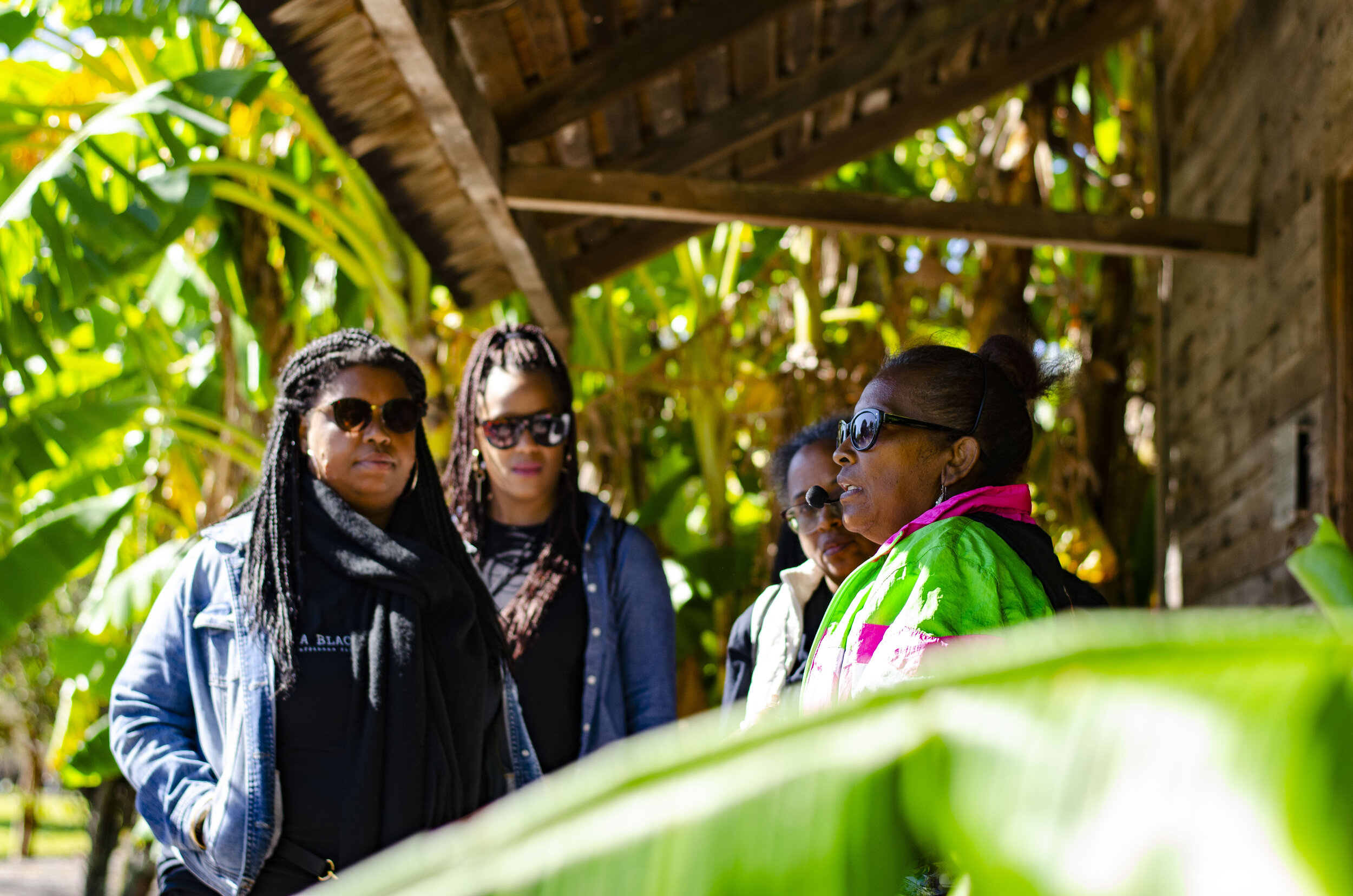
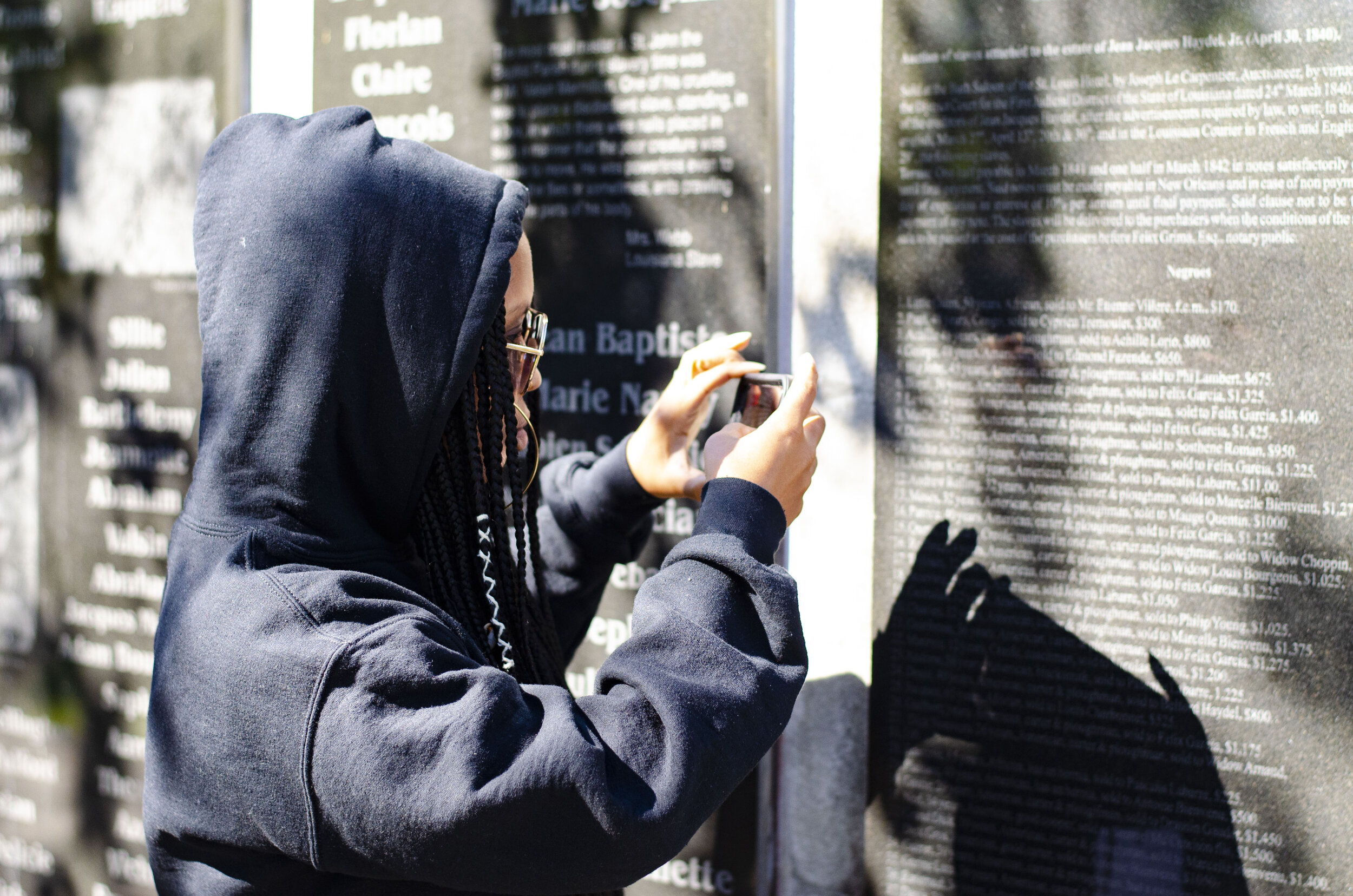
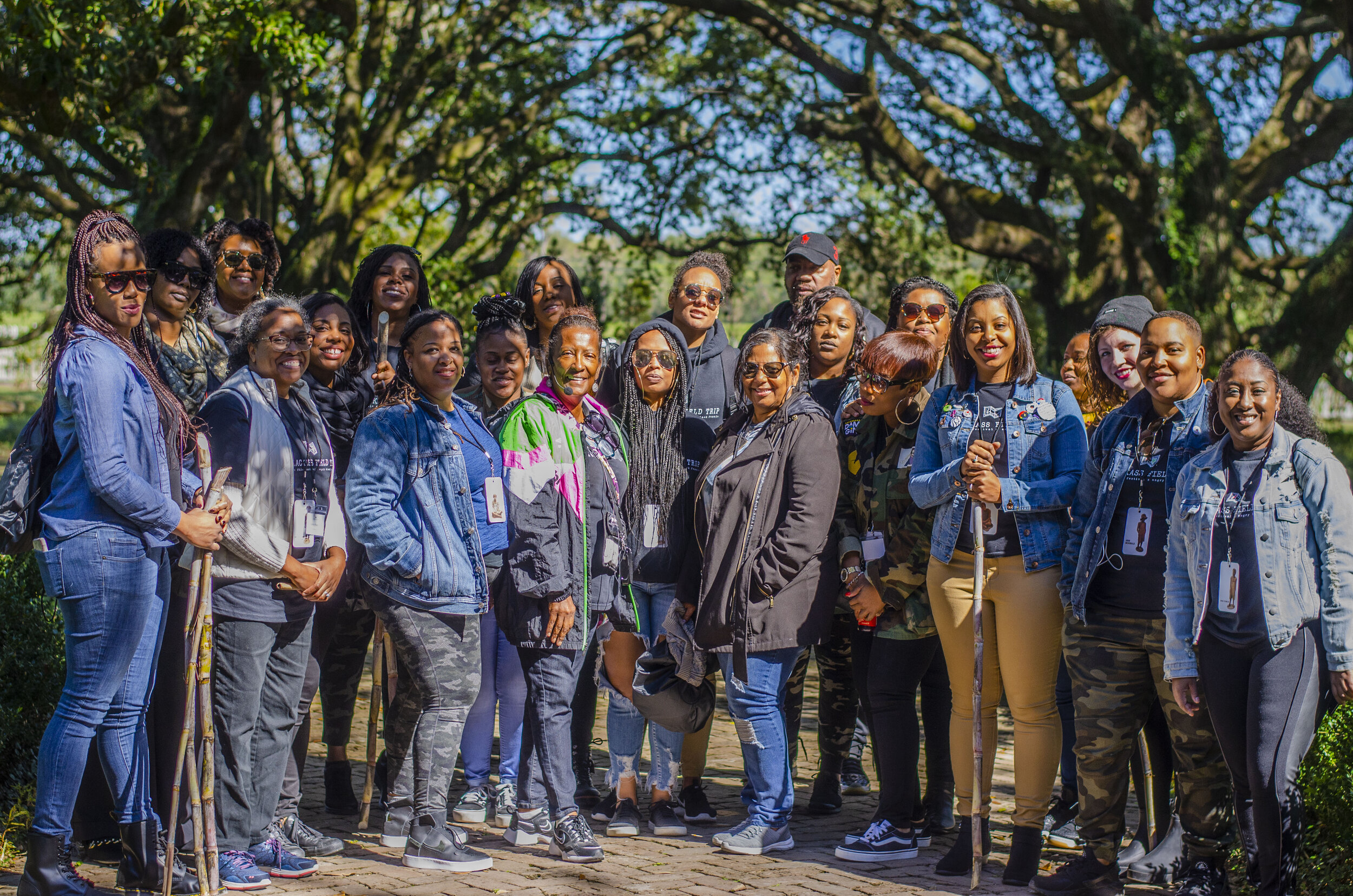
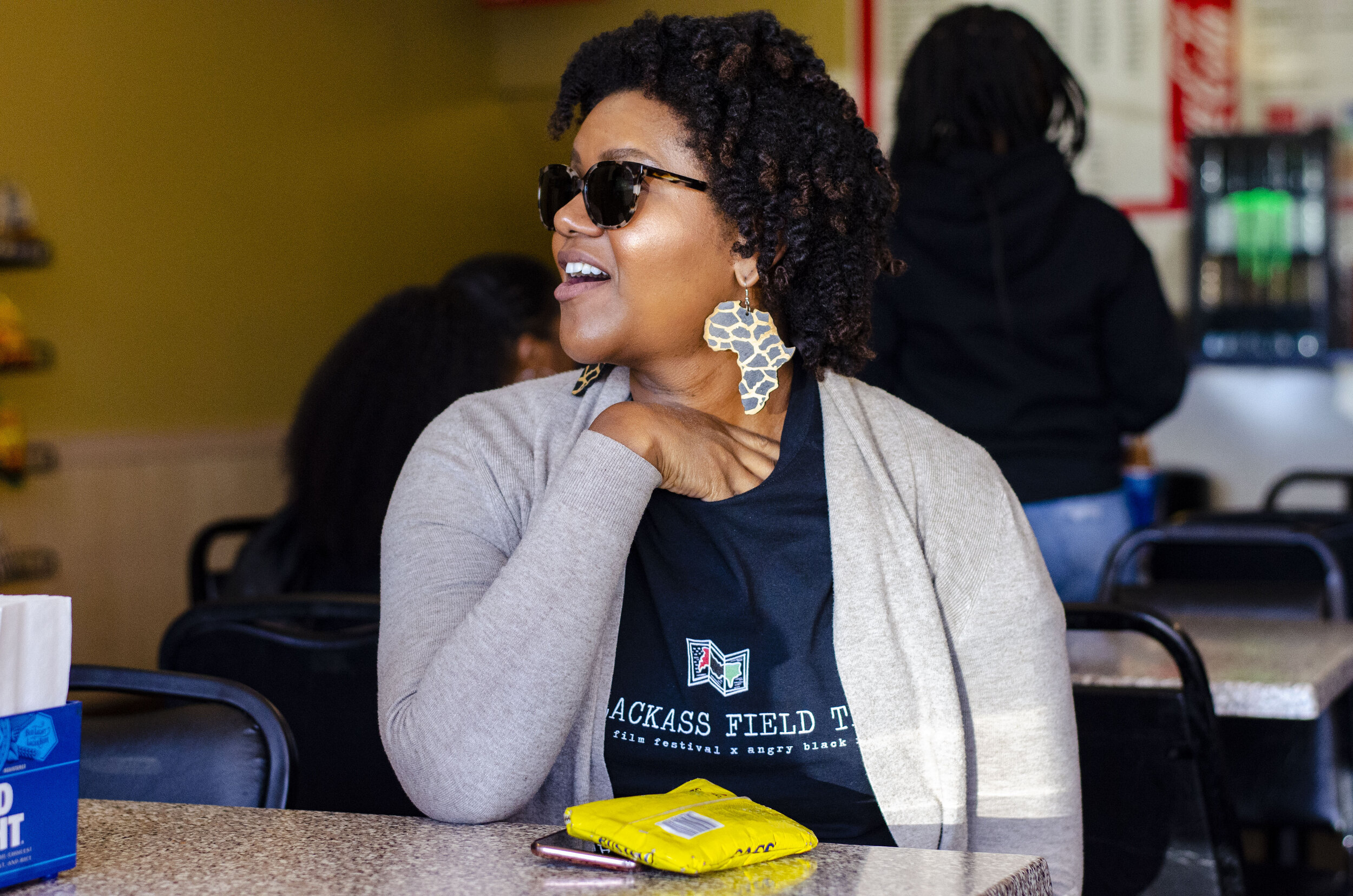
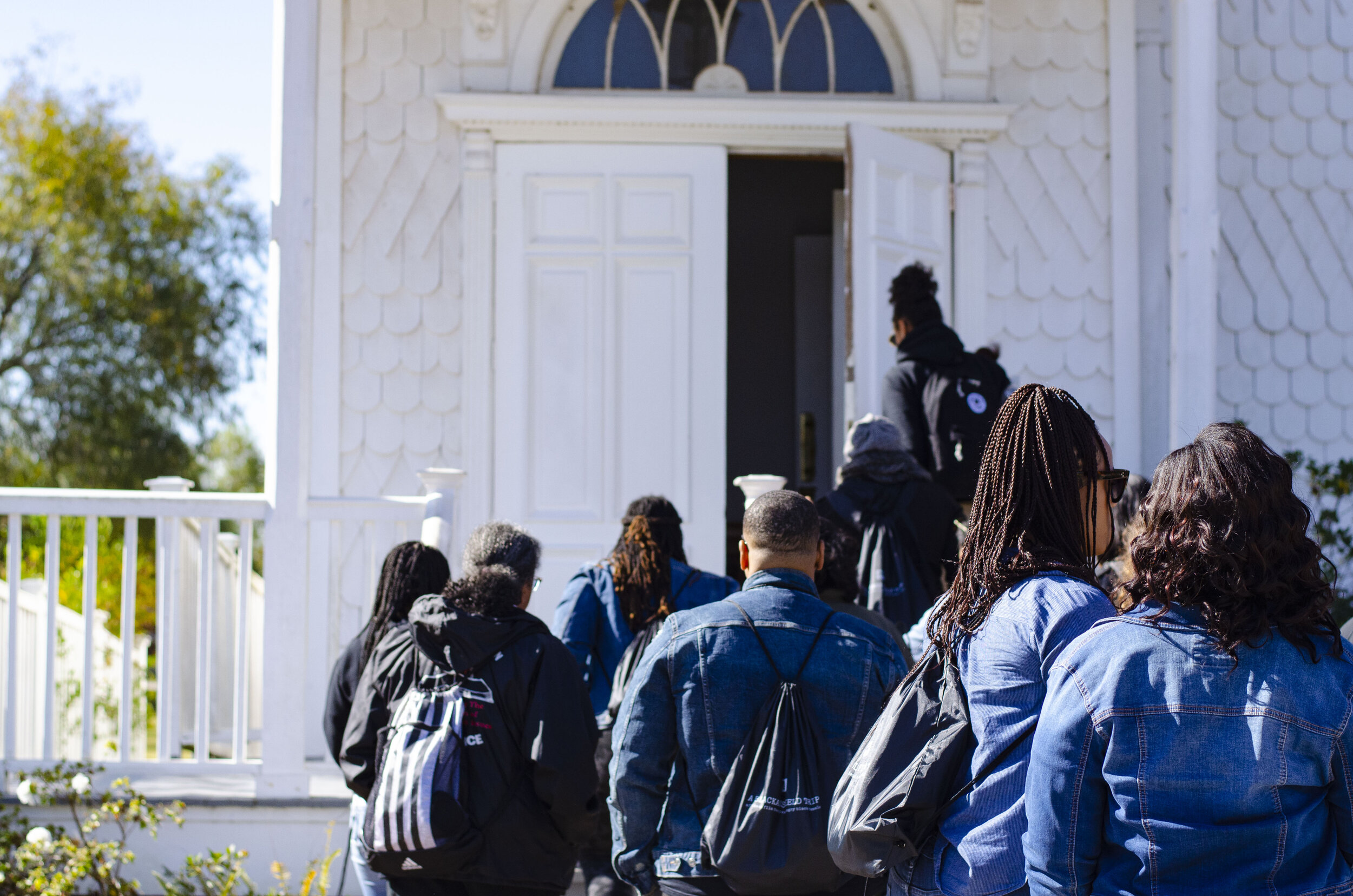
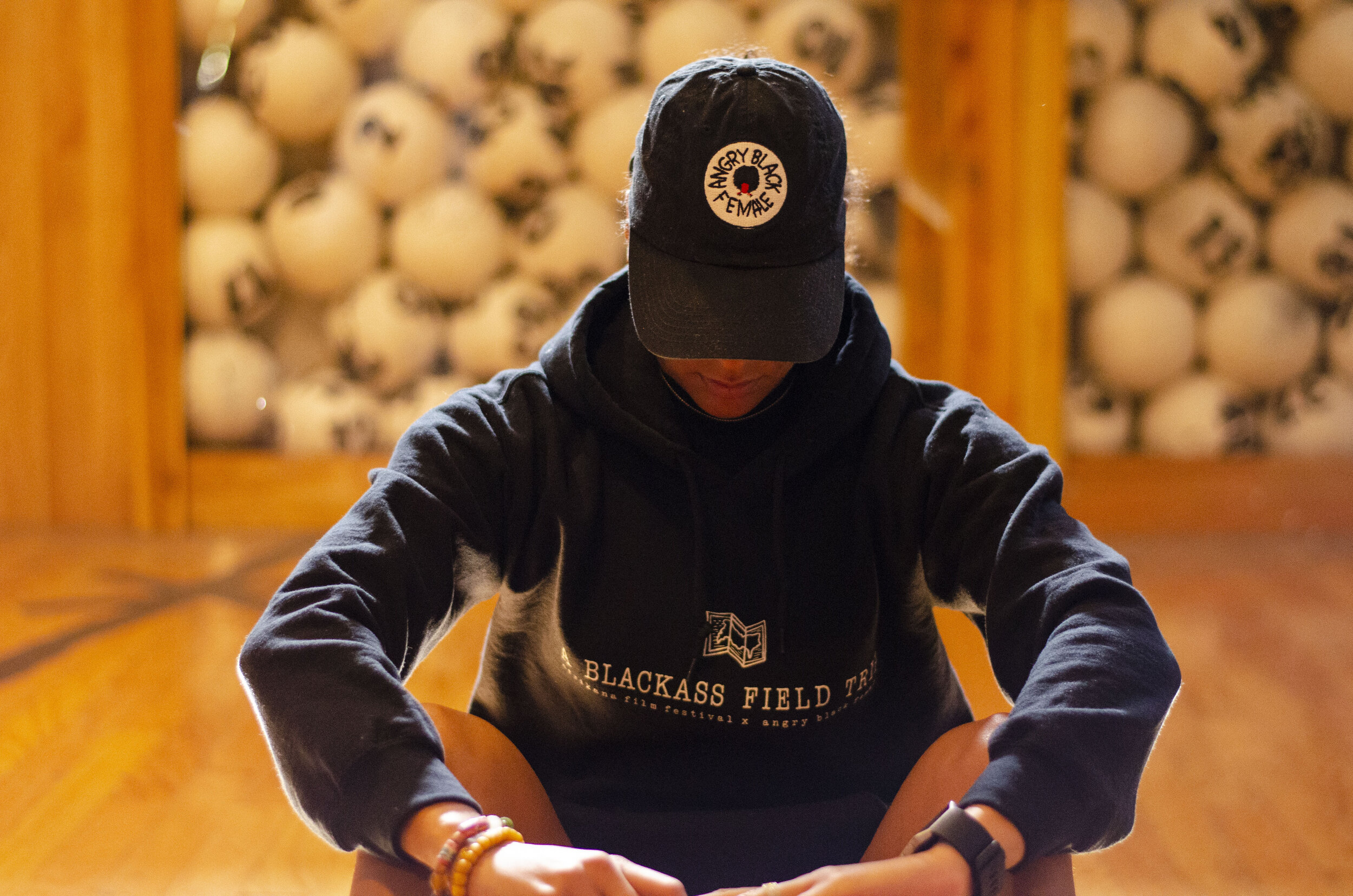
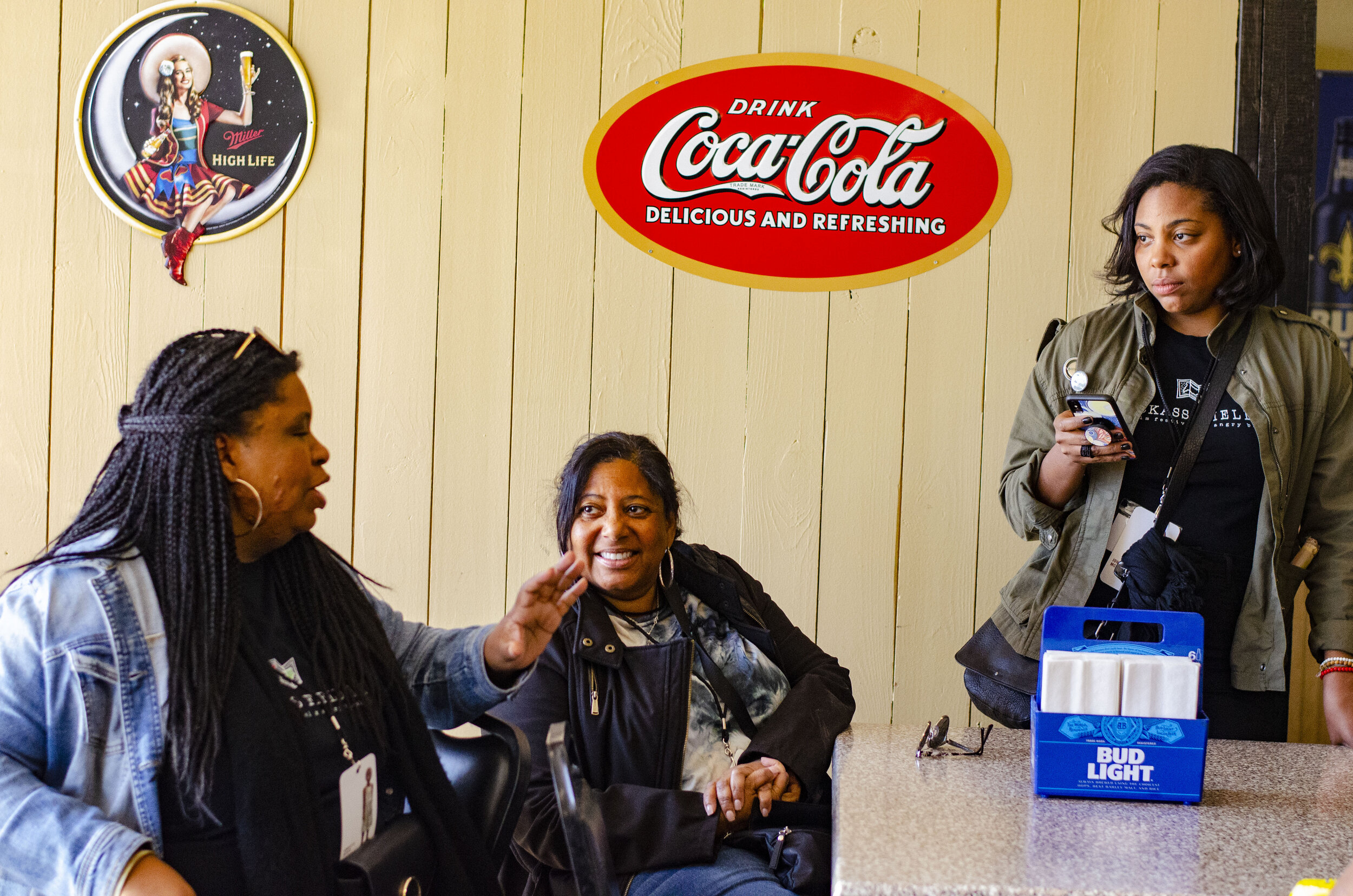
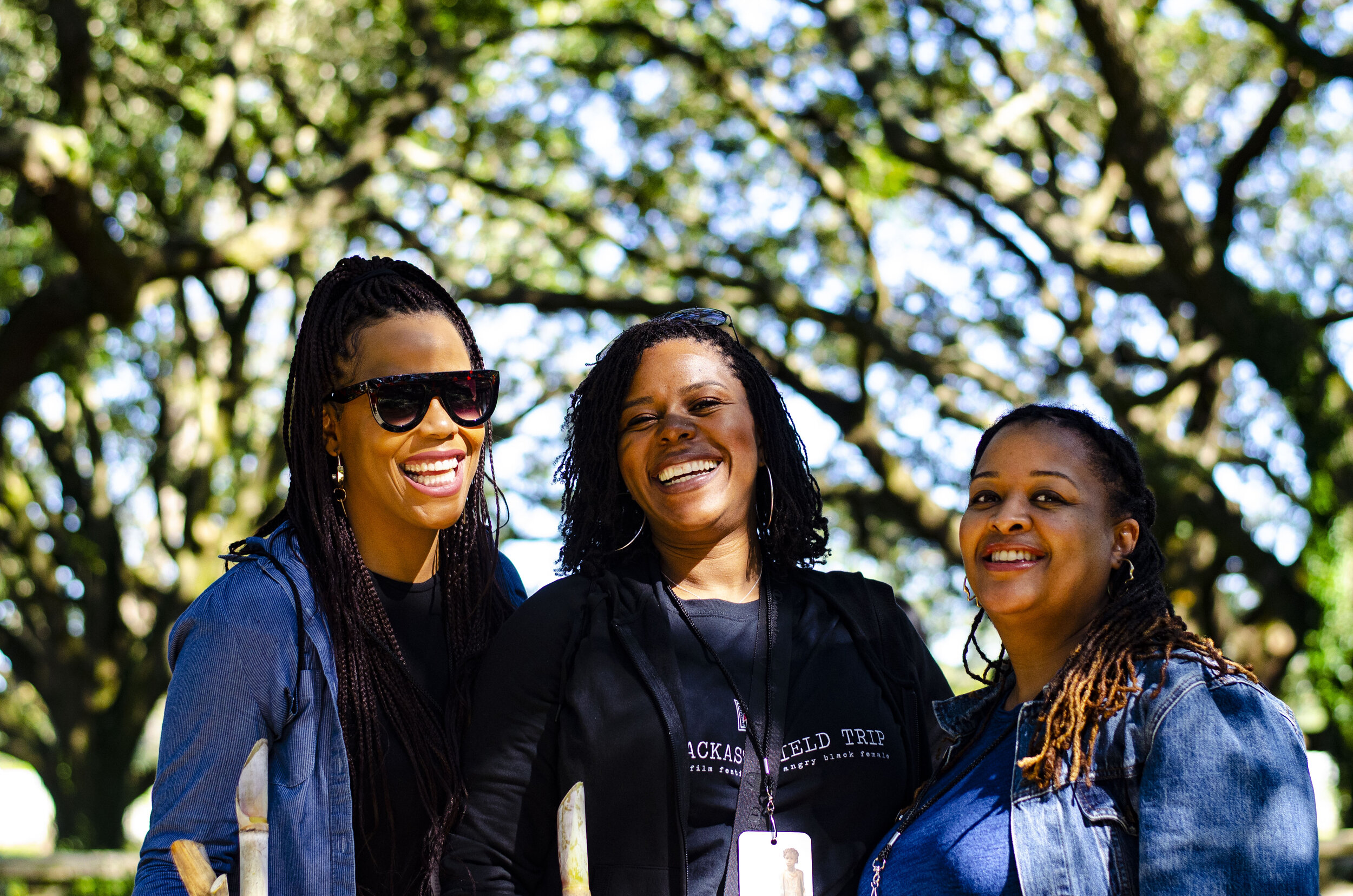
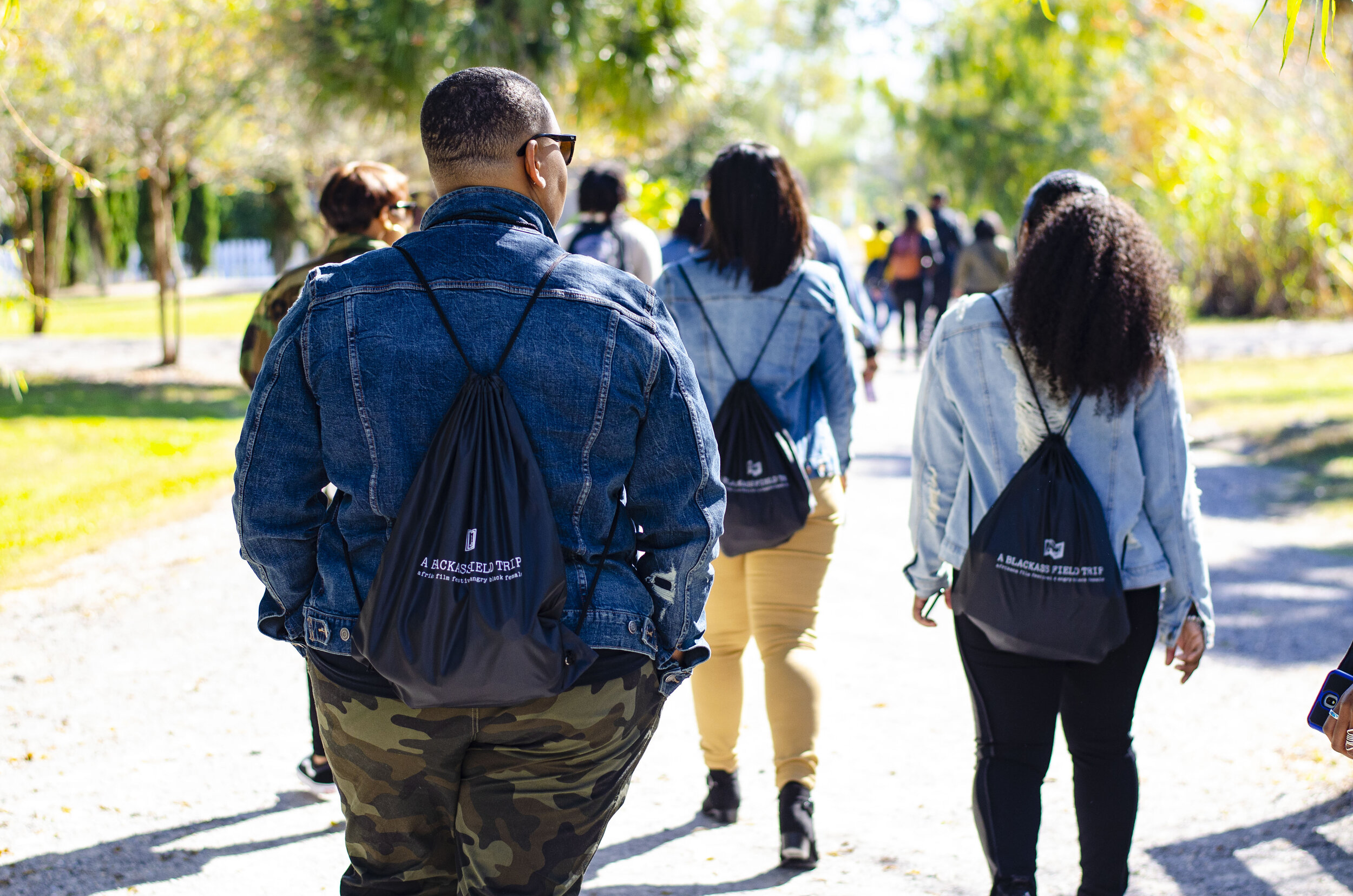
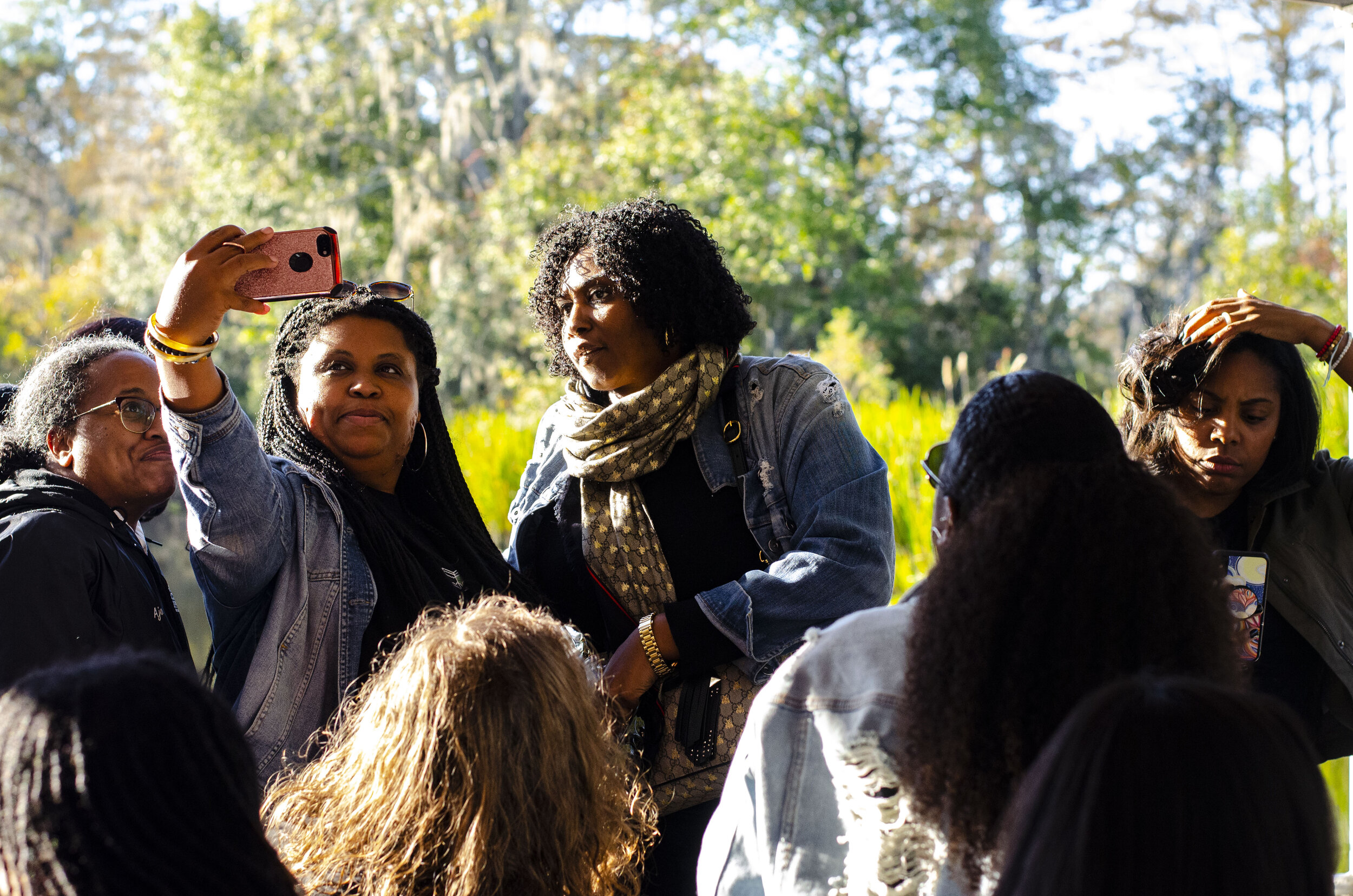
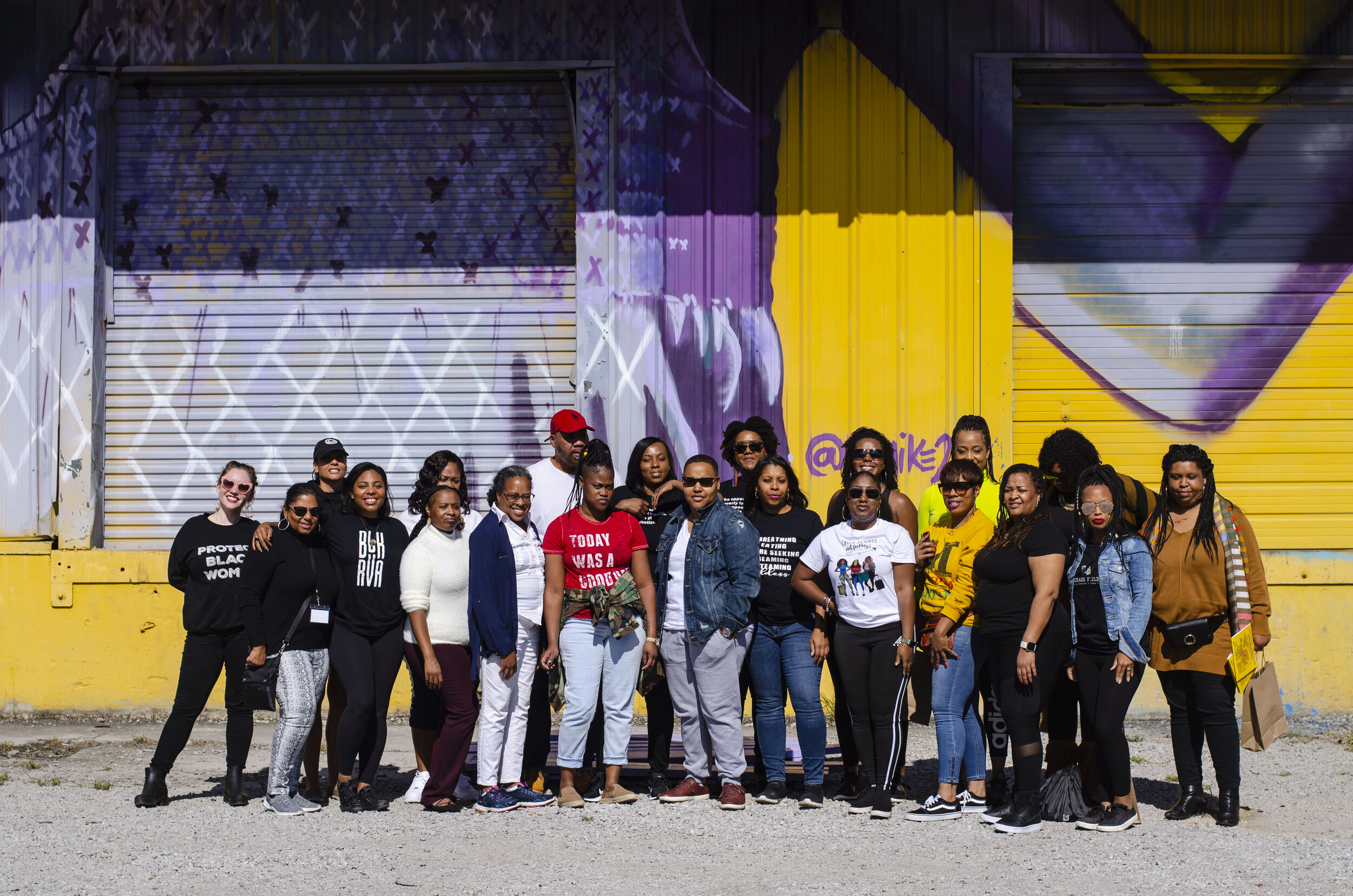
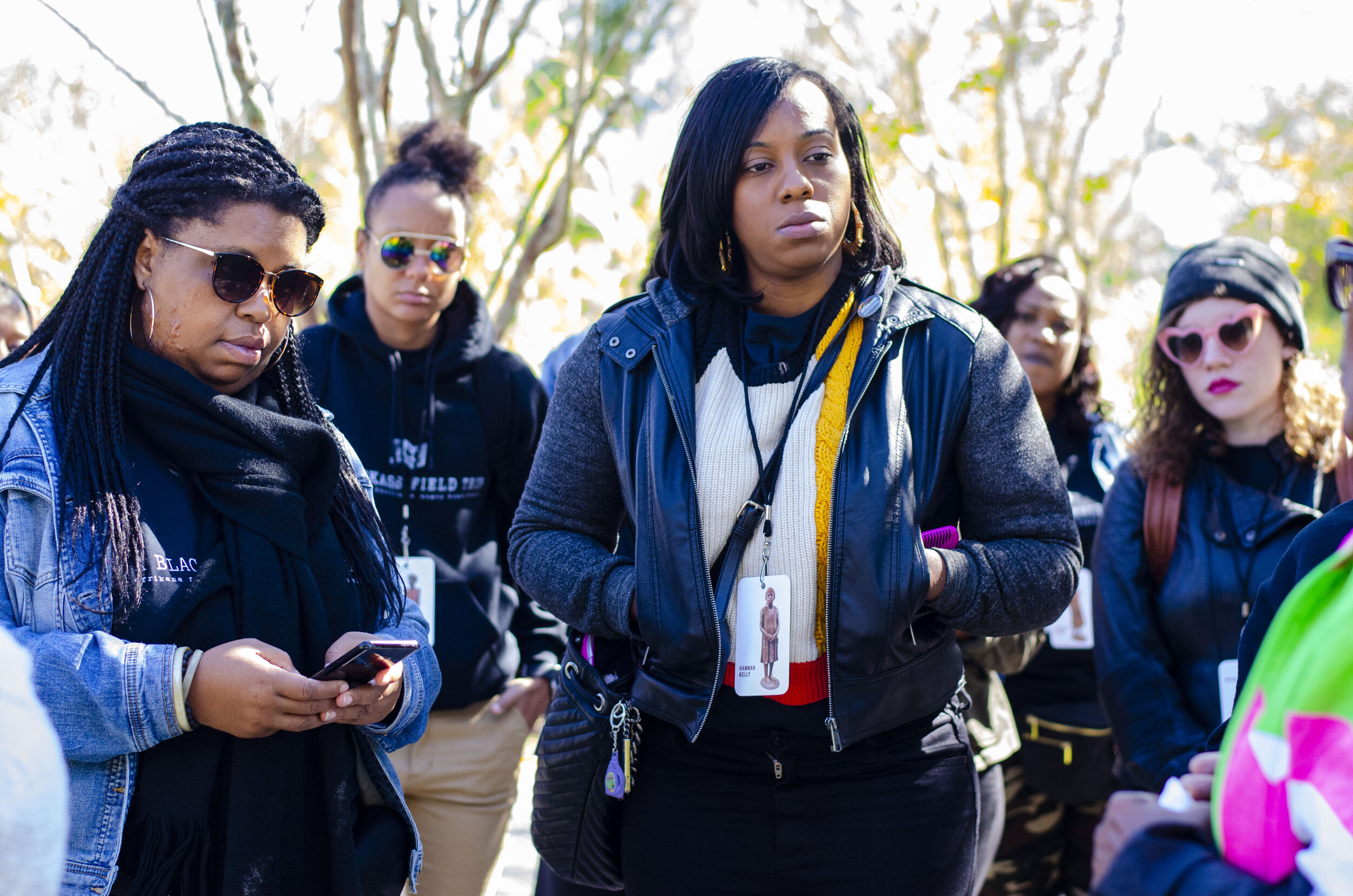
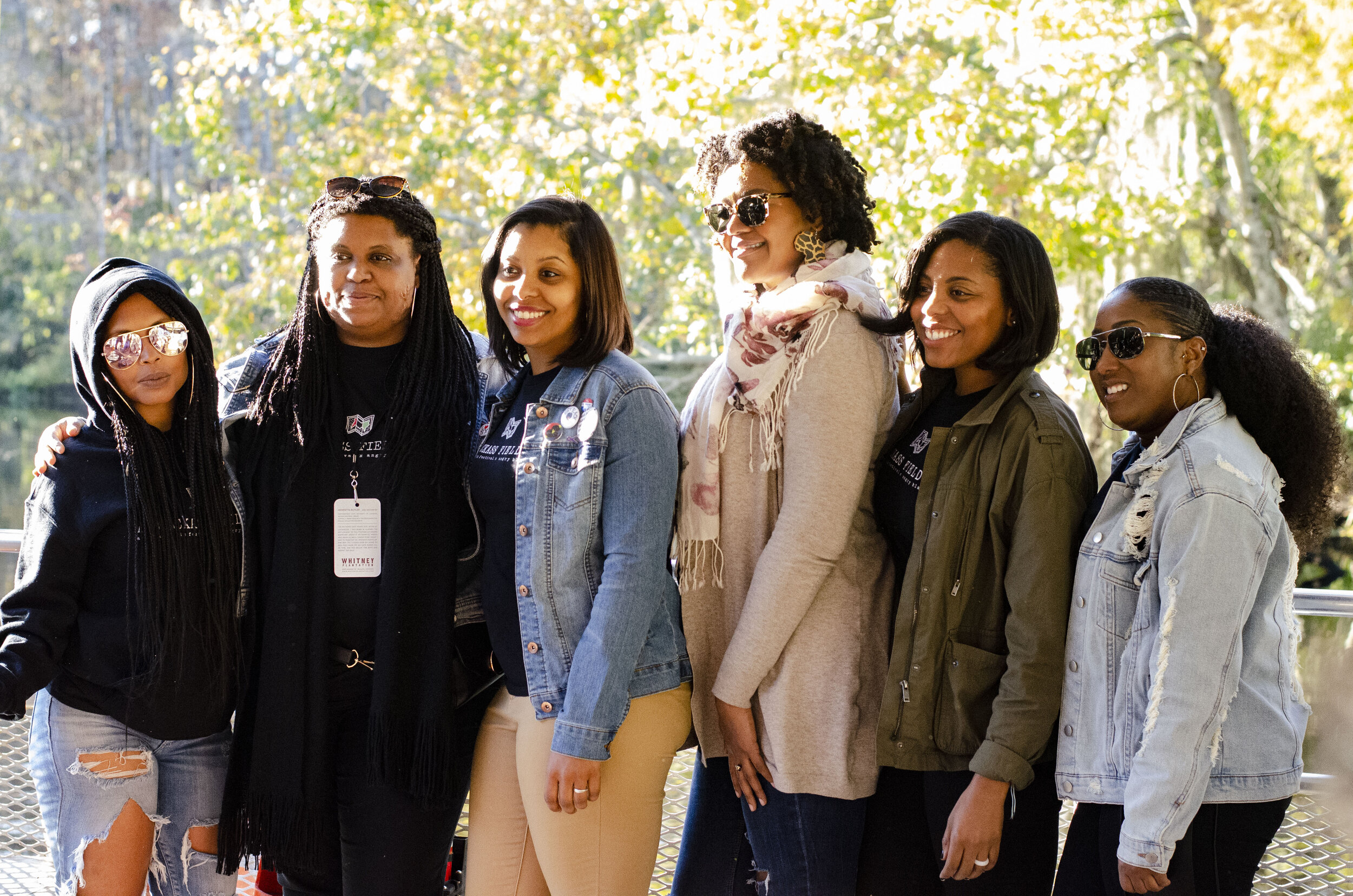
Unearthing the Unique Presence of Richmond
Enjoli: I would love for Richmonders to have a Blackass Field Trip in Richmond. There’s a ton of history that we just don’t know. What does it look like to put some respect on Richmond’s name for the people who live here so that they can have an increased level of pride and understanding when they think about their city? The pride doesn’t come because the history is beautiful. There’s a lot of ugliness to it. But through it, you can see the resiliency of Black people and how Richmond is the foundation for all the conversations that are happening around the country. We aren’t outside of that – we are fundamental to it.
Sesha: In a city that has worked overtime to make sure that we not only not remember but have some level of reverence to a confederate history, we have to do more work to uncover the history of Black Richmond. I hope the purpose of these field trips eventually will be that so many people see that they are tied to the city that it becomes a top destination of choice for Black people across the diaspora.
In doing research, we found out that some of the first restaurants date back to antebellum slavery in the 1820s. These grog shops and cook shops as they were called, were run by freed Black women out of their homes, kitchens and backyards. This is where some of the first bars in Richmond even pop up. When I think about the craft brewery and culinary scenes in Richmond, it all dates back to that 1 in 4 Black American experiences in the city. People don’t know.
Enjoli: They don’t know yet. But we fitna tell ‘em! A lot of times people think of Richmond as historically cool, historically relevant and it is. But it’s a thread that connects to the now, to the contemporary experience. The art scene now is in institutional spaces but it’s also in an energy of Black Richmond.
Richmond is part of an international conversation. I want people to understand the importance of the role Richmond has played in the development of the world we live in. I want people from Richmond to understand what that means for them in terms of being survivors of that and what they represent.
Local to Global: A Blackass Field Trip in Every City
Enjoli: With A Blackass Field Trip, we show we love Richmond because we carry it on our shoulders. We also carry this idea of what it means to be a melanated person in the world and to have real pride in that and to show up as your full self not feeling like you need to shrink or apologize when you step into certain spaces. On a Blackass Field Trip, you are with a bus full of varying-age Black people who have a certain level of knowledge of self and know they are not alone. There is power in that number and what it means to walk in that group is really powerful.
I hope BAFT helps you to feel comfortable with being Blackass wherever you go. Whether you are from Richmond or not, whether you are in the U.S. or some other part of the world, your Blackness is a power to be embraced. That power connects you to so many different experiences and histories whether you know about them or not.
Sesha: When researching, I am finding two things: 1) The Black historians are much older and either are still with us or already have passed on and there are not a lot of young historians doing the work. Blackass Field Trip can inspire people across their respective cities to take up the mantle and uncover their histories or continue to tell their histories.
2) The gatekeepers of history are often white people. Whether that be institutions that have [privileged] access to information or because we take for truth whatever’s put in books without doing the digging to find our own histories or taking our own intellectual field trips, I hope this inspires people to do the work to find the answers and not just listen to what’s been told to you.
Every city has a Blackass Field Trip waiting to be taken.
